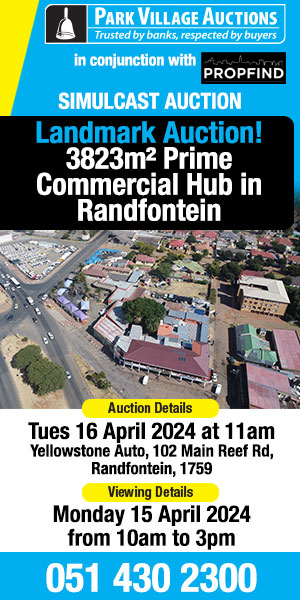PROPERTY markets across the board are still in hibernation mode, according to the latest Rode’s Report on the State of the Property Market.
The delayed effect of the business cycle on the property market is especially evident in the offices segment. For instance, it is only Durban’s decentralised areas that could attain any growth on a year ago (5%) that exceeds the expected growth rate in building cost inflation of 2,6%.
For Cape Town, Johannesburg and Pretoria, growth was on average below that of building cost inflation, and real rentals are lower than a year ago.
Erwin Rode, of property economists Rode & Associates, says even in the industrial property market, where manufacturing activity and retail sales are said to be recovering, the overall strength and stability of this recovery remains uncertain, particularly against the backdrop of a South African economy that continues to shed jobs and a stillwobbly world economy.
Such uncertainty in the industrial property market extends to prospects for market rentals, with these rentals continuing to contract across the country.
Likewise, flat rentals in Durban and Cape Town could achieve only a nominal 1% growth in the first quarter, while Johannesburg and Pretoria rentals were at the same level of a year ago.
However, Mr Rode says an interesting and “premature” trend over the past few months has been the recovery in the growth of nominal house prices.
“After reaching its lowest point in the first half of last year, yearly growth has accelerated to almost 14% in April, up from 12% in March, possibly due to easing credit standards,” says Mr Rode.
But, he warns, “once the base effects have played themselves out, one can again expect house prices, especially in the lower priced segments, to show more moderate growth rates. The reasons are household coffers that are still under pressure, job insecurity and house prices themselves that continue to remain high in real terms.”
Capitalisation rates have remained at roughly the same levels at which they were at the end of last year.
Mr Rode says the best way to describe the situation is “stable”. Capitalisation rates are the property equivalent of the forward earnings yield of shares.
“Still, considering that market rentals of offices, industrials and malls are shrinking in real terms, this situation could eventually lead to investors requiring higher minimum income returns to invest in property, and this would tend to depress market values.”
However, because of low loan to-value ratios traditionally enforced by South African banks, landlords in SA are generally under little duress to sell. “This explains the extraordinary stability of the premium property market”, he says.
Source: Business Day
Publisher: I-Net Bridge
Source: I-Net Bridge









